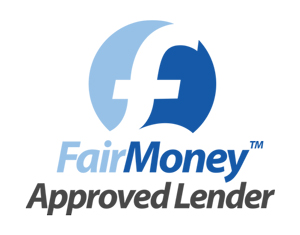Money Matters - Is Fairness The New USP For Fintech Entrepreneurs?
Vulnerable Consumers
It is often the most vulnerable consumers who end up getting the worst deals. The Britain’s Financial Conduct Authority tabled proposals aimed at preventing banks from imposing sky-high charges on those who breach their account overdraft arrangements. It’s a lucrative revenue stream. In 2017, Britain’s unarranged overdraft charges amounted to £750m. But here’s the thing - only 1.5% of customers were subjected to the penalties and they tended to be those who were already financially stressed.
The FCA has also promised a crackdown on buy-to-own retailers who enable their customers to purchase expensive goods - anything from washing machines to laptops - through a weekly repayment spread over five years. While this makes the products affordable, the total cost (including interest charges) can be three times that of the official retail price. Under the FCA proposals, the final amount paid will limited to a maximum of twice the ticket prices.
The common factor here is it is those who are least able to pay who often end up being charged the largest amounts. The same could be said of short-term payday loans, which have traditionally appealed to people who are struggling to make ends meet between one salary check and the next. Costs are relatively low if the sum is paid back within a short period, but if the borrower falters in the repayment schedule, the interest charges spiral higher.
Can Finance Be Fair?
Roger Gewolb, an American entrepreneur and fair finance campaigner based in the U.K. thinks so and in a bid to provide a better range of financial options, even for those with poor credit scores, he has launched a new website, FairMoney.
As Gewolb sees it, one of the main consequences of the 2007/8 financial crisis was that banks recalibrated their lending criteria and scorecards, thus consigning 50% of the United Kingdom’s potential borrowers to non prime status. Other providers flooded in to fill the vacuum, including so-called payday loans companies. “Payday loans could have helped,” he says. “But they exploited people.”
There were, he acknowledges, other alternatives, such as peer to peer lending platforms, but Gewolb argues that the original spirit of these sites - characterized by ordinary savers collectively lending to others - has changed with the arrival of institutional money. “And there is no best practice. The regulation is ultra light,” he says.
Rate Variation
As founder of the not-for-profit Campaign for Fair Finance, Gewolb saw these problems at first hand, but now he is seeking to provide a solution. FairMoney aims to provide borrowers with the cheapest available loans, according to their requirements and their credit scores. The concept is familiar to users of comparison sites. Potential borrowers decide which type of loan they require - from a list that includes term loans, peer to peer lending and car finance - and the site suggests providers. The deals on offer vary significantly depending on whether the borrower’s credit score is good, poor or bad. For instance, while APR rates for those with good credit run from 5.0 to 19.9% those with poor scores could end up paying between 19.2% and a hefty 162.8%, depending on the loan type. In other words, borrowers can’t defy gravity when it comes to risk assessment. However, Gewolb says the purpose is to provide a fair deal, based on circumstances.
He adds that lenders who use the site must conform to fair finance good practice. “They have to sign up to charter,” adds Gewolb.
Read the full article here: https://www.forbes.com/sites/trevorclawson/2018/12/23/money-matters-is-f...


